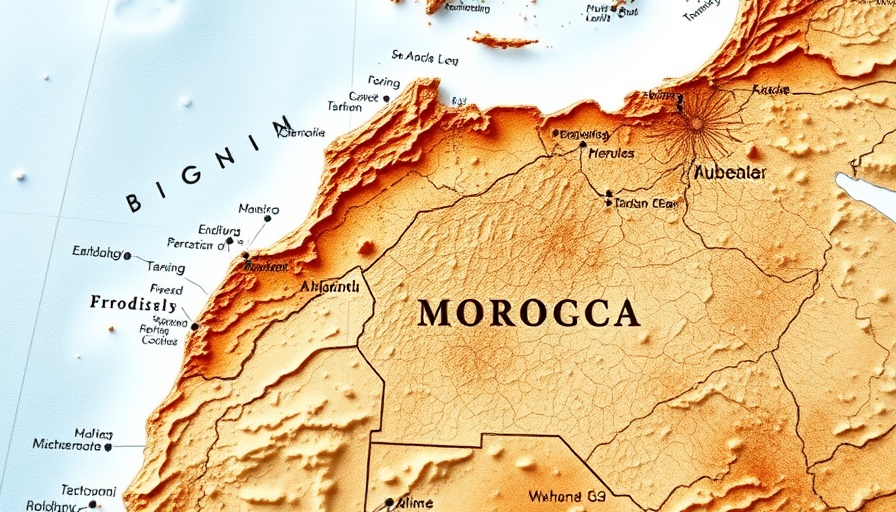
Morocco's Map Controversy: A Digital Age Misstep
The recent airing of an advertisement during the Women’s Africa Cup of Nations has reignited sensitivities surrounding territorial integrity in Morocco. This incident occurred when a map displayed on the public sports channel Al Riyadiya omitted the southern provinces, sparking immediate backlash on social media platforms. It's a situation that highlights how even minor digital errors can generate significant geopolitical discourse.
A Quick Response to a Regrettable Error
Responding swiftly to the public outcry, Al Riyadiya clarified that the map was not created by their team but instead was part of the international broadcast feed supplied by the Confederation of African Football (CAF). They emphasized their role as merely a technical relay, lacking any editorial control over what was presented. This incident showcases the fine line broadcasters tread in the age of interconnectivity, where images and data produced internationally can carry sensitive implications.
CAF's Responsibility and Apology
To quell the burgeoning controversy, CAF released an official apology to Morocco’s national broadcaster SNRT, taking full responsibility for the oversight. As part of their redress, CAF has committed to revising the promotional content and putting safeguards in place to prevent future oversights. This incident reflects a growing need for organizations to be cognizant of local sentiments when producing international content.
Implications Beyond Sports Broadcasting
This event brings forth questions about digital representation in a globally interconnected environment. In a world undergoing rapid digital transformation, where media and technology converge, it is essential for organizations involved in digital content creation and distribution to leverage robust localization strategies. This is particularly true in regions with complex political landscapes, where an omission can carry states’ ramifications.
Global Perspectives on Territorial Integrity in Media
The importance of territorial integrity is not unique to Morocco; nations worldwide have experienced similar instances where media portrayals have ignited tensions. For example, the portrayal of regions in satellite imagery or news graphics can stir emotions and provoke nationalistic responses. As technology accelerates the pace of information dissemination, the stakes associated with how nations are depicted in visual media can greatly increase.
Future Considerations in Digital Content Creation
Going forward, organizations, especially within the sports and media sectors, must invest in advanced technologies such as AI and machine learning. These innovations can enhance their ability to analyze and localize content effectively, ensuring that sensitive information is represented accurately. Furthermore, offering training in cultural competence and digital literacy can prepare teams to navigate the complexities of an ever-evolving global media landscape.
A Call to Tech Enhancements for Better Mediation
As companies continue to embrace digital innovations like cloud computing and big data analytics, it becomes even more crucial to embed safeguards against cultural insensitivity into their workflows. The ability to anticipate the potential implications of each graphic or video segment might prevent misunderstandings and preserve relationships across borders.
Creating a Culture of Awareness
The incident involving the CAF illuminates the broader challenges of navigating international territories in an increasingly digital world. Organizations must continually foster a culture of awareness, employing both technology and education, to ensure they accurately reflect the nations they depict.
 Add Row
Add Row  Add
Add 




Write A Comment